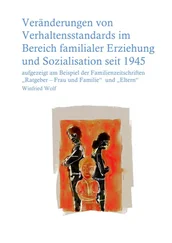Winfried Sebald - Vertigo
Здесь есть возможность читать онлайн «Winfried Sebald - Vertigo» весь текст электронной книги совершенно бесплатно (целиком полную версию без сокращений). В некоторых случаях можно слушать аудио, скачать через торрент в формате fb2 и присутствует краткое содержание. Год выпуска: 2001, ISBN: 2001, Издательство: New Directions, Жанр: Современная проза, на английском языке. Описание произведения, (предисловие) а так же отзывы посетителей доступны на портале библиотеки ЛибКат.
- Название:Vertigo
- Автор:
- Издательство:New Directions
- Жанр:
- Год:2001
- ISBN:978-0811214858
- Рейтинг книги:4 / 5. Голосов: 1
-
Избранное:Добавить в избранное
- Отзывы:
-
Ваша оценка:
- 80
- 1
- 2
- 3
- 4
- 5
Vertigo: краткое содержание, описание и аннотация
Предлагаем к чтению аннотацию, описание, краткое содержание или предисловие (зависит от того, что написал сам автор книги «Vertigo»). Если вы не нашли необходимую информацию о книге — напишите в комментариях, мы постараемся отыскать её.
Vertigo
The Emigrants
The Rings of Saturn
The New York Times Book Review
The Emigrants
Vertigo — читать онлайн бесплатно полную книгу (весь текст) целиком
Ниже представлен текст книги, разбитый по страницам. Система сохранения места последней прочитанной страницы, позволяет с удобством читать онлайн бесплатно книгу «Vertigo», без необходимости каждый раз заново искать на чём Вы остановились. Поставьте закладку, и сможете в любой момент перейти на страницу, на которой закончили чтение.
Интервал:
Закладка:
Until the end of the 1940s Dr Rudolf Rambousek had his practice in the Alpenrose, in the ground floor room opposite the coffee and wine bar. Dr Rambousek had come to W. not long after the end of the war, from a Moravian town, I believe from Nikolsburg, with his pallid wife and his two adolescent daughters Felicia and Amalia, and for him, and no less for his women, this must have been banishment to the ends of the earth. It was no surprise that this short, corpulent man, who was always dressed like a man about town, was unable to gain a foothold in W. His melancholy and foreign-seeming features, perhaps best described as Levantine, the way his lids were always lowered over his large, dark eyes, and his entire somehow distant demeanour, left little doubt that he was one of those who are born to lead inconsolable lives. To my knowledge Dr Rambousek did not befriend a single person during the years he spent in W. He was said to be withdrawn, and it is true that I cannot remember ever having seen him in the street, although he did not live in the Alpenrose but in the teacher's house and must therefore occasionally have been on his way either from the teacher's house to the Alpenrose or from the Alpenrose to the teacher's house. It was not least by virtue of his positively conspicuous absence that he was altogether different from Dr Piazolo, who must already have been approaching seventy and could be seen at every hour of the day and night riding his 750 Zündapp around the village or up and downhill to the outlying hamlets. In winter and summer alike Dr Piazolo, who in emergencies was willing to take on veterinary work without thinking twice about it and who had evidently resolved to die in the saddle, wore an old aviator's cap with earflaps, enormous motorcycling goggles, a leather outfit and leather gaiters. It is also worth mentioning that Dr Piazolo had a double or shadow rider in the priest Father Wurmser, who was also no longer one of the youngest, and who for a good while had been making his visits to the dying on his motorcycle carrying all that was necessary to perform the last rites, the consecrated oil, holy water, salt, a small silver crucifix and the holy sacrament, with him in an old rucksack which was exactly the same as the one belonging to Dr Piazolo. On one occasion the two of them, the priest and Dr Piazolo, mistook each other's rucksacks when they were sitting side by side at the Adlerwirt, and Dr Piazolo drove off to his next patient equipped for the last rites while Father Wurmser brought the doctor's instruments to the next member of his congregation who was about to expire. The similarity not only of the rucksacks belonging to Father Wurmser and Dr Piazolo but also of their general appearance was such that if you saw a dark motorcyclist somewhere in the village or on the roads outside the village, it would have been impossible to say whether it was the doctor or the parson, had it not been for the doctor's habit, while riding his motorcycle, of letting his feet, on which he wore hobnailed boots, drag through the gravel or snow on the road rather than placing them on the foot-rests, which meant that, at least when seen from the front or behind, he cut a different figure from the parson. It is easy to imagine how difficult it must have been for Dr Rambousek to take on his well-established competitors, and to see why he preferred, in contrast to these two as it were omnipresent emissaries, the priest and the physician, not to leave the house at all. Yet, it would be wrong to suggest that Dr Rambousek did not enjoy the esteem of those who went to him. I more than once heard my mother extolling the medical skills of Dr Rambousek in the highest possible terms, particularly when talking to Valerie Schwarz, the milliner, who came not from Moravia like Dr Rambousek but from Bohemia, and who, despite her shortness, had a bosom of a size that I have only seen on one occasion since, on the tobacconist in Fellini's film Amarcord. But while my mother and Valerie could not praise Dr Rambousek highly enough, the other villagers would never have dreamed of going to his surgery. If something was the matter, you simply sent for Dr Piazolo, and that was why Dr Rambousek spent most of his time, day after day, month after month and year after year, sitting alone in his surgery in the Alpenrose. At any rate, when I went across to Mathild with my grandfather I always saw him through the half-open door in the sparsely furnished room, sitting in his swivel chair and writing or reading or simply staring out of the window. Once or twice I quietly stepped onto the threshold and waited for him to look across at me or ask me to come closer, but either he never noticed my presence or he did not feel able to address the strange child. One exceptionally hot day in the midsummer of 1949, when — Grandfather and Mathild were conversing in the front room, I sat for a long time on the topmost step of the stairs that led up to the attic, listening to the creaking of the roof timbers and the few other noises, such as the rising and falling screech of a circular saw or the solitary crowing of a cockerel, that came into the house from outside. Before my grandfather's visiting time was ended, I went down into the hall passageway, having determined to ask Dr Rambousek if he was not perhaps capable of healing the old Engelwirt landlord's open sore that grew larger by the day, and to my bewilderment, found the door to the surgery closed. Cautiously, I pressed down the handle. Inside, everything was bathed in the deep green summer light that filtered through the leaves of the lime tree outside the window. The silence that surrounded me seemed boundless. As was his wont, Dr Rambousek was sitting on his swivel chair, except that his body was leaning forwards onto the desk. The left shirt sleeve was rolled halfway up, and in the crook of the elbow, turned sideways at an odd angle, rested the doctor's head, seeming somehow outsize, with its dark, slightly protruding but still beautiful eyes staring fixedly into the void. I left the surgery on tiptoe and climbed back up to my station right at the top of the attic stairs, where I waited until I heard my grandfather coming out of the parlour with Mathild. Not a word about Dr Rambousek did I breathe to my grandfather, both out of fear and because I myself could scarcely believe what I had seen. On the way home we had to pick up the fob watch he had left to be repaired at Ebentheuer's the watchmaker. The doorbell clanged, and there we were, standing in the small shop in which a host of long-case clocks, wall-mounted regulators, kitchen and living room clocks, alarm clocks, pocket and wrist watches were all ticking at once, just as if one clock on its own could not destroy enough time. While Grandfather talked to Ebentheuer, who, as always, had his watchmaker's glass jammed into his left eye, about what had been wrong with his fob watch, I looked across the shop counter into the half-lit living room where the youngest of the Ebentheuer children, who was called Eustach and had water on the brain, was sitting on a high chair, rocking gently back and forth. As for Dr Rambousek, he was found the same evening lifeless and cold in the surgery of the Alpenrose by his wife, who shortly afterwards moved away from W. together with her two daughters. Later I once overheard Valerie Schwarz whisper to my mother that Dr Rambousek had been a morphine addict or morphinist, as she put it, and that hence his skin was often tainted yellow. Because of this to me incomprehensible remark, I believed for a long time that people born in Moravia were called morphinists and that they came from a country quite as far away as Mongolia or China.
During the years when we lived above the Engelwirt, I would unfailingly, in the early evenings, be seized by the desire to go down to the taproom to help Romana wipe the tables and benches, sweep the floor or dry the glasses. It was not, of course, these chores but Romana herself who drew me and in whose company I conspired to spend as much time as I possibly could. Romana was the elder of two daughters of a family of small-holders who, in the hamlet of Bàrenwinkel, rented a few patches of land and a crooked, timber-framed house which, toysized in comparison with the other farmsteads, stood all by itself on a hillock and always reminded me of the story of Noah, especially as in and around it there appeared to be two of every kind — apart from the parents and the two sisters, Romana and Lisabeth, there was a cow and a bull, two goats, two pigs, two geese, and so on. There were larger numbers only of cats and hens, and they sat or scratched about way into the surrounding fields. There were also a sizeable flock of white doves which, when they were not clambering back and forth over the ridge, soared above and around the little house which, with its shingled and much-mended hipped roof, unusual for the area, looked for all the world like the biblical Ark stranded on the brow of a hill. And every time I passed by there, Romana's father, who was a canny old rogue, would be peering out of one of the tiny windows like Noah himself, smoking a cheroot. Romana came over from the Barenwinkel every afternoon at five, and I often walked to meet her at the bridge. She was then twenty-five at most, and everything about her seemed to me to be of exceptional beauty. She was tall, with a broad, open face and water-grey eyes and as much flaxen hair as a Haflinger pony. She differed in every respect from the womenfolk of W., who were almost without exception small, dark, thin-haired and mean. She was so unlike the other women and maids that no one, despite her conspicuous beauty, ever made a proposal of marriage to her. If, later in the evening, I was allowed down into the taproom again to fetch a packet of Zuban cigarettes for my father, Romana would be sailing through the throng of peasants and woodcutters, who would regularly be sozzled by nine, as if she came from another world. At night the taprooms made a fearsome impression, and if it had not been for Romana I would probably not have dared enter that dreadful place where the menfolk sat hunched on the long benches with a vacant look in their eyes. Occasionally one of these motionless figures would rise and sway, as if he were on a raft, towards the door that opened onto the hallway. There were pools of beer and melted snow on the oiled floorboards, and the smoke, drifting through the bar in dense swathes towards the rattling ventilator, joined with the sour reek of wet leather and loden cloaks and spilled gentian schnapps. Mounted on the walls above the brown-painted panelling, stuffed martens, lynxes, capercaillies, vultures and other exterminated creatures were awaiting the time until they could take their long overdue revenge. The peasants and woodcutters almost always sat together in groups at the top or bottom ends of the bar. In the middle stood the large iron stove, which quite often in the winter months was stoked and poked so much that it started to glow. The only one who sat alone, unheeded by all the others, was Hans Schlag the huntsman of whom it was said that he hailed from other parts, from KoEgarten on the Neckar in fact, and that he had managed extensive hunting grounds in the Black Forest for several years before moving from there to the district around W., nobody knew precisely why. He had been out of work for over a year until he had been taken on by the Bavarian forestry commission. Schlag the hunter was a fine figure of a man, with dark, curly hair and beard and uncommonly deep-set, brooding eyes. For hours, frequently until far into the night, he would sit with his half-emptied tankard without exchanging a word with anyone. His dog, Waldmann, slept at his feet, tied to the rucksack hanging from the back of the chair. Whenever I went down into the taproom to fetch a packet of Zuban for my father, Schlag the hunter would be sitting at his table like that. His eyes were always lowered, looking at the gold pocket-watch, an exceptionally fine piece, which he had placed in front of him, as if there were some important appointment he had to keep; but in between times he would look across through his half-closed eyes at Romana, who would be standing behind the high bar filling the schnapps and beer glasses. On one evening that has remained stardingly clear in my memory, at the beginning of December, when snow had fallen as far down as the valley for the first time, the hunter was not sitting in his place when I came into the taproom after supper, and Romana, inexplicably, was nowhere to be seen either. Intending to fetch the packet of five Zuban from the Adlerwirt, I went through the rear of the house out into the yard. A myriad minute crystals glittered in the snow all around me and in the sky above glittered the stars. The headless giant Orion with his short shimmering sword was just rising from behind the black-blue shadow of the mountains. I remained standing for a long time amid that winter splendour, listening to the ringing of the cold and the sound the heavenly lights made in their slow orbits. I suddenly had a feeling then that something was moving in the open doorway of the woodshed. It was Schlag the hunter, who, holding onto the slatted frame of the shed with one hand, stood there in the darkness like a man leaning into the wind, his entire body moving to a strange, consistent and undulating rhythm. Between him and the slatting he gripped with his left hand, Romana lay on a heap of cut turf, and her eyes, as I could make out in the light reflected from the snow, were turned sideways and as wide open as those of Dr Rambousek when his head had lain lifeless on the top of his desk.
Читать дальшеИнтервал:
Закладка:
Похожие книги на «Vertigo»
Представляем Вашему вниманию похожие книги на «Vertigo» списком для выбора. Мы отобрали схожую по названию и смыслу литературу в надежде предоставить читателям больше вариантов отыскать новые, интересные, ещё непрочитанные произведения.
Обсуждение, отзывы о книге «Vertigo» и просто собственные мнения читателей. Оставьте ваши комментарии, напишите, что Вы думаете о произведении, его смысле или главных героях. Укажите что конкретно понравилось, а что нет, и почему Вы так считаете.












